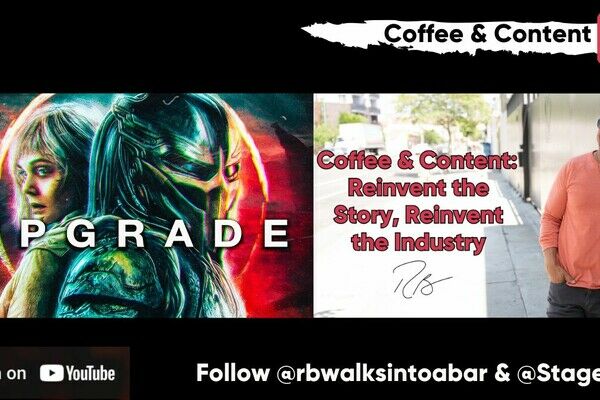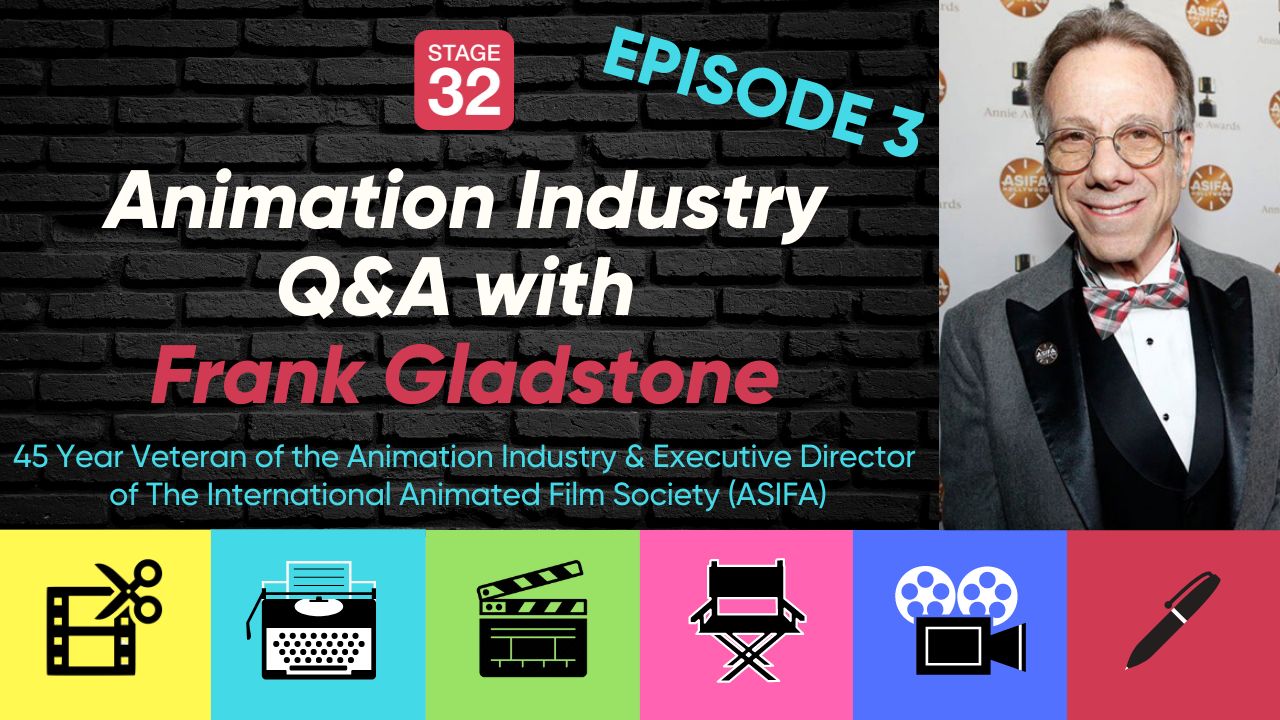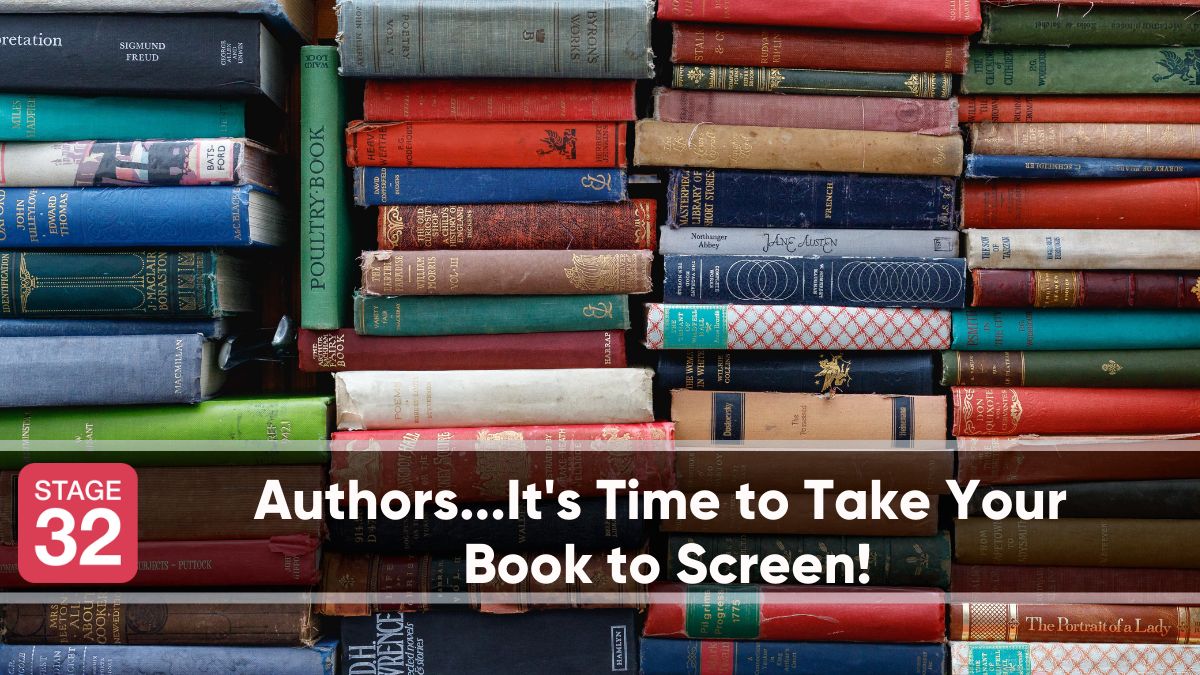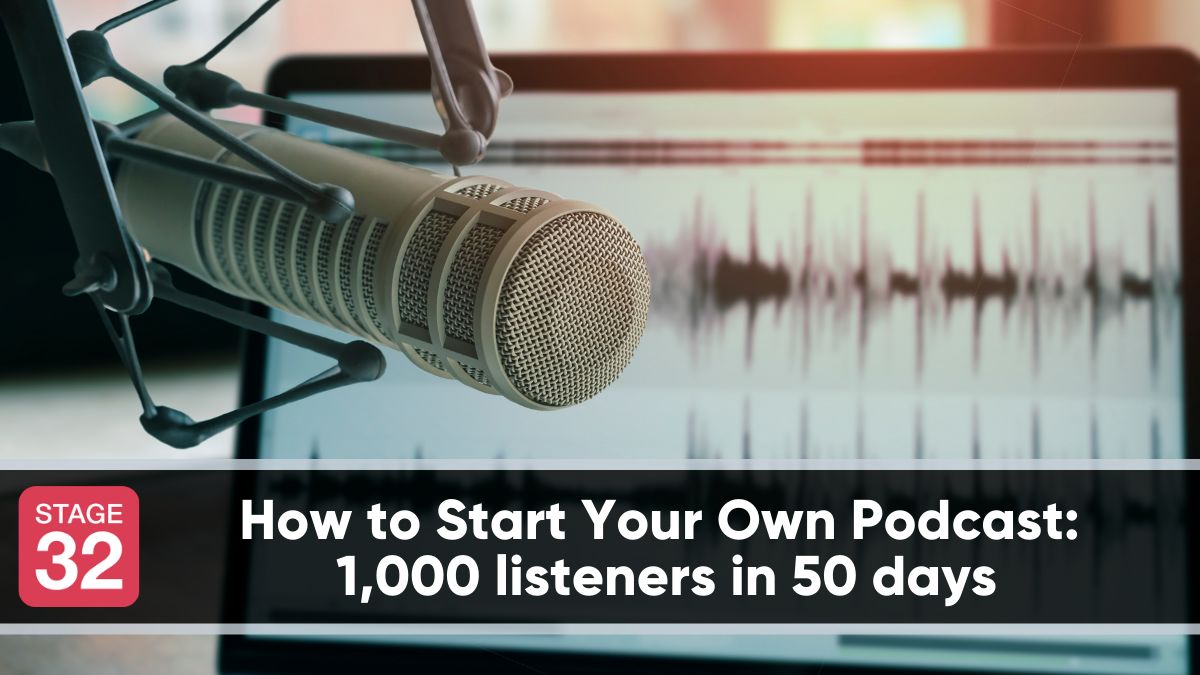How to Start Your Own Podcast: 1,000 listeners in 50 days
Here’s the thing about podcasts: literally anyone with a computer can make one.
And so many people do. I’m going to go out on a limb here and bet that most of you reading this are, at the very least, considering starting your own podcast. And you should! It’s a great way to reach an audience, build your brand, and/or sell a product.
But here’s the other thing about podcasts: most of them suck. The vast majority of podcasts don’t get more than 136 downloads per episode in 30 days, according to thepodcasthost.com.
So, before you rush out to drop $300 on equipment, wrangle in a couple buddies to join you, and hit record, let me share with you some fundamental elements that my co-hosts and I learned from starting our own podcast, Six-Page Scripts, and what we did to break 1,000 downloads in less than 50 days.

FIND A NICHE
So many podcasts are just a few friends sitting around talking about nothing. It worked for Seinfeld. It doesn’t work for (most) podcasts. You need to pick a concept—something that interests you, something on which you have an educated or informed opinion, something that you’re passionate about. Your idea doesn’t have to reinvent podcasting or storytelling; your unique and interesting perspective alone will bring the nuance your concept needs.
The real key is to be specific. The more the better.
Here’s an example: I did a simple google search of “parenting podcasts”. As you can imagine, THOUSANDS popped up. Then, I refined the search to “single-parent podcasts”. Now we’re in the hundreds. Then I googled “widowed-parents podcast” and only one came up. Does that mean it’s the only one out there? Probably not. But it’s specific enough to have a niche that separates it from other shows. And listeners interested in this topic can easily find it, making it something that stands out, which is incredibly important.
Don’t get me wrong. I’m not telling you to start a podcast about parenting. But I am telling you to find a concept that you’re passionate about, interested in, have an opinion on, and then get SUPER specific with how you approach it. This may not get you a HUGE audience. But it will get you the right audience.
That’s what we did when we came up with our podcast, Six-Page Scripts. We’re all experienced screenwriters, interested in and passionate about the craft and business of screenwriting. But there are dozens of screenwriting podcasts out there already. What was going to be our specific way in, our nuanced angle? We didn’t just want to do an educational podcast where we talk techniques, rules, and craft, or interview our professional screenwriter friends (all of which we do, by the way). We also wanted to do those things in a practical setting, one that applied the techniques and rules of the craft and advice from professional screenwriters to actual scripts that are submitted by actual listeners. So, while we do educate and give advice alongside our industry friends, we do so while table reading and workshopping listener-submitted scripts. And the best part: it’s totally free to submit.
Ultimately, we found a way to nuance the screenwriting podcast concept in a way that was fresh, original, and interesting to us. It marries that audio drama and interview formats, while also putting our skills, experiences, and expertise to use educating writers and providing another path for their talent and work to be discovered.
Which leads us to the next critical piece of advice for your podcast…
![]()
FIND WAYS TO ACTIVELY ENGAGE WITH YOUR AUDIENCE
It’s one thing to come up with a specific concept that appeals to a targeted audience, it’s another to actively engage with them. Take a step back and think: How can you involve audience? Maybe you invite listeners onto your show to share their opinions, perspectives, and stories? Maybe you invite them to ask questions and pitch discussion topics that you then build episodes or segments around?
For us on Six-Page Scripts, this effort is multi-layered. Obviously, our concept inherently involves listeners by table reading their submissions and workshopping their scripts, but we also developed segments dedicated to listener engagement that allow us to communicate our purpose, our initiatives, and our goals.
One of these is an advice segment, wherein listeners ask us questions about the craft and/or business of screenwriting. We dedicate 5-10 minutes of the show to give our perspectives on these simple and specific topics. We solicit these discussion topics through our social media accounts, @sixpagescripts, asking our listeners and followers to comment on social media posts with their questions, or to DM/email us the questions they want answers to or clarity on. We also invite them to give their additional feedback on the scripts we post on our website, www.sixpagescripts.com, and social accounts. We alternate between the advice segment and a news segment. If something interesting is happening in the industry or there’s a story our audience brings to our attention, we talk about it on the show. Finally, we have donate buttons on our website where listeners can support our efforts and contribute to the quality and success of the show. Every episode, we shout-out these listeners as both a thank you and as a way to talk about them and any specific initiatives or projects they’d like us to mention.
All of these strategies allow us to actively engage with our audience and involve them in the show beyond just reading and critiquing their scripts. Bottom line: listeners appreciate their voices, opinions, perspectives being heard and shared. And simple efforts like these will show that you appreciate them too. So try to find ways to do this for your show, but the critical step is to make sure this engagement is intimately and specifically tied to your concept. That all said, these engagement techniques require that you have methods to interact with your audience. Which leads us to…

DOING THE PRE-PILOT LEGWORK
Create a logo. Make a website. Build your social media accounts. Decide on pages, colors, concepts, and topics, and be consistent with your branding. These are critical steps if you want to grow an audience. After you have the concept, you have to build show’s digital foundation. You can create social media for free. Even a website can be free, depending on what you want out of it. But investing even a little money into a quality website that you can direct your audience to and offer additional content will go A LONG WAY.
But your brand, while you should be consistent, is going to be constantly shaped and re-shaped to meet the needs and interests of your audience. This is largely a trial and error process, especially in the beginning stages of your podcast. It’s just like writing the first draft of your screenplay, or the first cut of your film. You’ll experiment, find out what works and what doesn’t and make changes accordingly. Flexibility and honesty here are key. You won’t have all the answers right away. Feel it out and be open to change.
EQUIPMENT AND SOFTWARE
Once you have your concept nailed down and your website and social media tee’d up and ready to go, it’s time to invest a little money in some equipment. You don’t have to go crazy. You can get a decent mic-and-stand combo kit on Amazon for less than $100 bucks. We use Zencaster to record (for now, because we do it virtually). It’s free and records all of our tracks individually so we can edit them easily in post. We use audacity to edit. And libsyn.com to distribute our episodes to Apple Podcasts, Spotify, iHeartRadio, Google Podcasts, Stitcher, etc. They have multiple subscriptions plans ranging from free to $150 a month, depending on what you need in terms of monthly storage space and ad capabilities.

SET A PLAN AND STICK TO IT
The monthly storage space that we get on Libsyn allows us to store and distribute four episodes per month. We decided, early on, to make this a weekly show. You can choose bi-montly, once a month or anything in between, but you can’t do it randomly. If you’re not publishing episodes on a regular schedule, you won’t generate a consistent listener base. Your audience won’t know when to tune in and the auto-subscribe feature on most platforms turns off if too much time lapses in between downloads. So, pick a release schedule and stick to it. You can always do more but doing less is going in the wrong direction.
Having a consistent release schedules also requires you to have consistent recording and production schedules. On Six-Page Scripts, we record once a week, allow 2-3 weeks for each episode in post, and then release. This also depends largely on the scale of your show. We have multiple segments, sound design, and music, so we need more lead time prior to releasing an episode. If you’re just shooting the shit about a specific topic, you may not require as much lead time in post. We also release weekly episodes, so that requires us to keep up with our content.
PRACTICE
After talking everything through conceptually, nailing down our segment ideas, establishing production and publishing plans, and building the social media platforms and website, we were ready to record. But we didn’t just hit play and do our thing. We recorded and produced a practice episode that we knew we would never release (except possibly to Patreon subscribers down the road). This was HUGELY helpful. We worked out recording issues, figured out what to do and what not to do to make our post-production workflow smoother and more efficient. It also allowed all of us – there are four regular hosts on Six-Page Scripts - to feel each other out in terms of our dynamic. I can’t recommend this highly enough.
WHEN TO RELEASE YOUR PILOT
We recorded and fully produced four complete episodes prior to releasing our pilot. This did a few things. First, it allowed us time and backup episodes in the event that technical issues made a recorded episode unusable. Second, it gave us all a better feel for the show and we were able to go back and tweak previous episodes accordingly. Third, it gave us time so that we never felt pressured to rush an episode through post. It allowed us to thoroughly promote the release of our pilot on our social platforms, and to sufficiently plan out upcoming episodes. And finally, it allowed us leeway in case one of us got sick or had some sort of emergency that prevented us from meeting at our regularly scheduled recording time. This is all so that we can stick to our weekly release plan worry-free. Again, I can’t recommend this highly enough. After you’ve got a few episodes in the can, and you’re comfortable with what you’ve created, then you upload and release.
CRITICAL PARTNERSHIPS
It’s super important to not only engage with your audience, but to engage with platforms that your audience also engages with. In our case, that means other screenwriting and filmmaking podcasts and professionals. We often invite them to be guests on our show to promote projects their working on and give feedback on scripts along with us. We partnered with CoverFly to hold open submissions until September 30th. This gave us a wonderful tool to manage our incoming submissions and select the scripts we plan to read. It also lets submitting writers track their progress through the selection process, and selection to our “Short List” contributes to their projects’ “Red List Score”.
We got in touch with Stage 32 and invited Taylor Baker, the Director of Content & Branding and a fantastic actress, to be a guest on the show. Several entertainment and screenwriting blogs, websites and news outlets have featured Six-Page Scripts in their publications. And we also recently teamed up with the Nashville Film Festival to feature some of the winners from their screenwriting competition on our show. These are critical to not only growing our audience, but to amp up the promotion and visibility of the scripts and writers we feature every week.

GROW WITH YOUR AUDIENCE
You’re not going to get it right the first time. Or the first few times. It’s a learning process. The key is to grow your show as your audience grows. We’ve done that through industry partnerships, but also the quality of our show. Here are some specific examples: Originally, we took the Hollywood approach where we only talked about the aspects of the scripts that needed improvement. Now we dedicate several minutes of our critique celebrating what the script does well. We also started adding sound design during our table reads to increase the quality of the audio-drama feel and presentation of the scripts. As of Episode 15, which will release early October, we are casting our table reads with working and aspiring actors to further improve the quality of the table reads. (We’re writers. Not actors.) If you’re an actor interested in playing roles in our table reads, check out our website for more information on how to submit or simply email us your headshot and resume. As your audience grows you have to keep them interested by growing and improving your show along with them.
Clockwise from Top Left, Mitch Olson, Laura McCarter, Jason Faust, Kelley Bostian
MONETIZATION
The section you’ve all been waiting for—how do you make money off of your show?
The best way to make money from your podcast is to offer and sell a product. Six-Page Scripts is an educational screenwriting podcast where we read and workshop listener-submitted short scripts and two- to ten-page excerpts from writers’ larger works. So, naturally, we’re building a platform where writers who want us to do a deeper dive on their full-length work can purchase more thorough feedback from us and other industry professionals. These aren’t basic coverage notes. This is professional feedback from working industry professionals. We’ll offer several different packages, bulk rates, and feedback that focuses on areas that the writers want us to pay particular attention to. The platform, Script-Righters, will officially launch in January 2021.
If your podcast can’t sell a service like this, then the low-hanging fruit option is to sell merchandise on your website and/or offer a Patreon where subscribes can pay a small monthly fee to get exclusive content.
The other, more challenging way to make money from a podcast is via ads. From the start we on Six-Page Scripts have crafted and read fake ad copy to get our listeners used to hearing ads. We feature parodies of made-up products and services that really allow us to have fun with the idea of ads in our show. And listeners LOVE IT. We plan to keep doing this even when we get real companies and real ads. Our thinking is that this will encourage our audience to actually listen to the ads, as opposed to skipping over them (which I’m guilty of, even in my favorite podcasts). Many ad deals with companies don’t pay you unless listeners use your promo code to purchase products, which makes the advertising aspect of a podcast challenging. The other challenge with ads is that you can’t even start reaching out to advertisers/companies until your episodes regularly reach 1,000 downloads. And you need the demographic statistics to really target your ads to your listeners. And once that happens, you’ll earn (depending on the nature of the deal) about $50/ad/1000 listeners/episode. This can add up quickly. Most platforms, like Libsyn, can set this up for you when you reach that point.
But making money off of your podcast all starts with a well-thought out and specific concept, lots of planning and practice, a consistent release schedule, built-in methods to actively engage with your audience and platforms in place to do it, and constant self-reflection and improvement. You master these things in ways that feel organic to your show, and you too can be on your way to reaching that coveted 1,000 downloads in less than 50 days. Until then, check out our show, and tell us what you think! Happy listening, and happy podcasting.
About Mitch Olson

Mitch Olson is a writer-producer currently based in Atlanta, Georgia.
He is the founder and CEO of Point South Productions, an Atlanta-based film and television production company that specializes in creative development and literary management. Our mission is to represent - in both the voices we manage and the content we create - the power of diverse perspectives and stories.
Prior to moving to Atlanta, Mitch Olson worked in Los Angeles in film and TV development, and on shows for NBC, Fox, CBS and Netflix. In addition to his work at Point South Productions, he teaches Screen and TV Writing at Kennesaw State University where he is building a Screen and TV Writing MFA program and training the many diverse and talented writers that he hopes to one day represent and work with.
He is also the creator and host of "Six-Page Scripts", an educational screenwriting podcast that table reads and workshops listener-submitted scripts, often alongside industry professional guests. It's free to submit and you can find the podcast wherever you get your podcasts!
Keep Up with Six Page Scripts:
Instagram: @sixpagescripts
Twitter: @sixpagescripts
Website: www.sixpagescripts.com
Submit Your Script // Request to Be a Reader: submit@sixpagescripts.com
Support: sixpagescripts.com/donate
Let's hear your thoughts in the comments below!
Got an idea for a post? Or have you collaborated with Stage 32 members to create a project? We'd love to hear about it. Email Taylor at taylor@stage32.com and let's get your post published!
Please help support your fellow Stage 32ers by sharing this on social. Check out the social media buttons at the top to share on Instagram @stage32online Twitter @stage32 Facebook @stage32 and LinkedIn @stage-32
| Animation Industry Q&A with Frank Gladstone - 45 Year Veteran of Animation: EPISODE 3 |
| Authors...It's Time to Take Your Book to Screen |
Search Stage 32 Blog
There are now 4040 blog posts for you to enjoy. Search them all by tags below.
Acting, Advice, Cinematography, Coffee & Content, Composing, Contests, Distribution, Featured, Filmmaking, Financing, Inspirational, Networking, Producing, Screenwriting, Success Stories, Tips, Trending,Relevant Tags
Recommended Articles

November Write Club Week 4: The Art of the Pitch- What Managers & Execs Actually Want to Hear
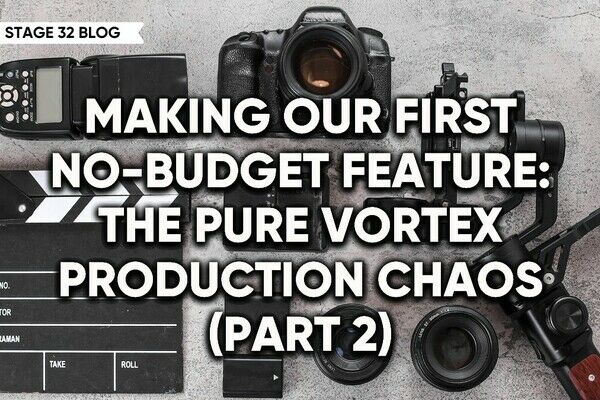
Making Our First No-Budget Feature: The Pure Vortex Production Chaos (Part 2)

Wearing Many Hats As A Creative

Stage 32 Featured at the 43rd Torino Film Festival!

Coffee & Content: Why Your Pitch Needs to Be Human

What Stage 32's Community Is Really About (Beyond Scripts, Sets, and Showreels)

Stage 32 + DramaBox Join Forces to Launch World's First Vertical Drama Incubator

7 Life Hacks For Creatives

How to Get Help from Stage 32: Meet the Teams Behind the Scenes
